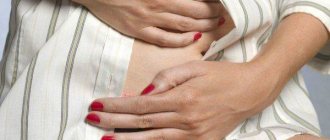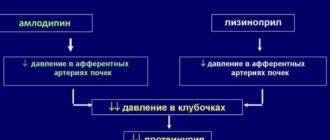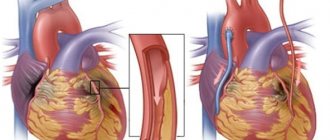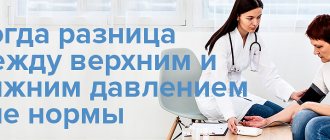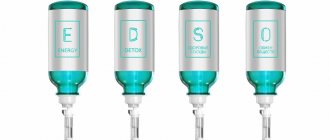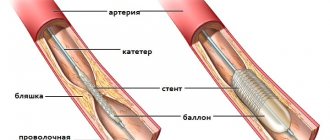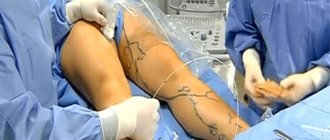This term has other meanings, see Transposition.
| Transposition of organs | |
| ICD-10 | [apps.who.int/classifications/icd10/browse/2010/en#/Q89.3 89.3]89.3 |
| ICD-9 | [www.icd9data.com/getICD9Code.ashx?icd9=759.3 759.3]759.3 |
| OMIM | 270100 |
| DiseasesDB | 29885 |
| eMedicine | [www.emedicine.com/radio/topic639.htm radio/639] |
| MeSH | D012857 |
Transposition of internal organs
(
situs inversus
) (also called mirror inversion) is a rare congenital condition in which the major internal organs are mirrored from their normal position: the apex of the heart faces to the right (the heart is on the right side), the liver is located on the left , stomach on the right.
The normal location is called situs solitus
.
In rare cases, an uncertain position of internal organs occurs, which is called heterotaxy, or situs ambiguous
.
The term situs inversus
- a short form of the Latin phrase "situs inversus viscerum" meaning "inverted arrangement of internal organs."
Dextrocardia (eng. Dextrocardia
) - a condition in which the apex of the heart faces to the right;
was first described by Marco Severino in
1643.
However, the situs invertus
was first described more than a century later by Matthew
Baillie
.
The prevalence of visceral transposition varies among different populations, but occurs in less than 1 in 10,000 people[1][2]
Anatomical structure
This condition affects all major organs within the chest and abdomen. In general, the organs are simply located in a mirror image. The heart is located on the right side of the chest, the stomach and spleen are on the right side of the abdomen, and the liver and gall bladder are on the left. trilobed _
) is the left lung, bilobed (
bilobed
) is the right lung. Blood vessels, nerves, lymphatic vessels and intestines are also inverted.
If the heart is located on the right side of the chest, then this condition is called transposition of internal organs with dextrocardia .
) or
situs inversus totalis
.
If during transposition the heart remains in the left side of the chest, which is much less common (1 in 22,000 cases of situs inversus), then this condition is called transposition of the internal organs with levocardia ( English levocardia )
or
situs inversus incompletus
. Transposition of viscera with levocardia or dextrocardia without transposition are much more dangerous birth defects than transposition of viscera with dextrocardia.[2]
Term[ | ]
The term situs inversus
- a short form of the Latin phrase "
situs inversus viscerum
", meaning "inverted arrangement of internal organs."
Dextrocardia, a condition in which the apex of the heart faces to the right, was first described by Marco Severino in 1643. However, the situs invertus
was first described more than a century later by Matthew Baillie[2].
The distribution of transposition of internal organs varies in different groups of the world's population, but occurs no more often than 1 in 10 thousand people[3].
Meaning in life
In the absence of congenital heart defects, people with transposition of internal organs can lead a normal life, without any complications associated with their medical condition. In 5-10% of cases in people with situs inversus totalis
There are heart defects expressed in the incorrect location of large heart vessels. With transposition of internal organs with left cardia, heart defects are observed in 95% of cases.[2]
Dextrocardia occurs in some people with Patau Syndrome
(trisomy on chromosome 13)), while the remaining organs are located in the usual way.[3]
Many people with transposition of viscera do not realize their unusual anatomy until they undergo medical examination for reasons unrelated to the transposition. Mirror organ placement can lead to slight confusion as most signs and symptoms will be on the “wrong” side. For example, if a person with transposition develops appendicitis, he will complain of pain on the left side of his lower abdomen, since this is where his appendix is located. Consequently, when a disease occurs, knowing that a person has transposition of internal organs can speed up the establishment of a correct diagnosis.
Transposition also complicates organ transplant operations, since the donor is virtually certain to be a person with a normal arrangement of internal organs ( situs solitus
). Because the heart and liver are not symmetrical, geometric problems arise when placing the organ in a cavity formed in a mirror image. For example, a person with transposition who needs a heart transplant needs all the blood vessels from the donor heart to be transplanted. However, the orientation of these vessels is completely altered in a person with transposition and requires successive steps to attach the blood vessels properly.[2]
How does the appendix work?
The appendix has its own mesentery in the shape of a triangle between the cecum and ileum. It contains adipose tissue, vessels and nerve branches. At the base of the process, the peritoneum forms folded pockets. They are important in terms of limiting the inflammatory process.
The wall of the appendix is formed by three layers or membranes:
- serous - representing the continuation of a single layer of peritoneum with the ileum and cecum;
- subserous - consists of adipose tissue, it contains a nerve plexus;
- muscular;
- mucous membrane.
The muscular layer, in turn, consists of:
- from the outer layer with the longitudinal direction of the fibers;
- internal - the muscles move circularly.
[node:field_field_doprekl]
The submucosal layer is formed by cruciform elastic and collagen fibers and lymphatic follicles. In an adult, there are up to 80 follicles per cm2 of area with a diameter of 0.5 to 1.5 mm. The mucous membrane forms folds and outgrowths (crypts).
In the depths there are secreting Kulchitsky cells that produce serotonin. The epithelium is prismatic single-row in structure. Between it are goblet cells that secrete mucus.
The appendix communicates with the lumen of the cecum through its orifice. Here it is covered by Gerlach's own valve, formed by a fold of mucous membrane. It is well expressed only by the age of nine.
Kartagener's syndrome
Main article: primary ciliary dyskinesia
primary ciliary dyskinesia
Approximately
25% of people with situs inversus have an underlying diagnosis of primary ciliary dyskinesia (PCD). PCD is a dysfunction of cilia that manifests itself during the embryonic phase of development (embryogenesis). Normally functioning cilia determine the location of internal organs during early embryonic development, therefore people with PCD have a 50% chance of developing transposition of internal organs. Approximately half of patients with PCD have Kartagener syndrome
), which is characterized by a triad of symptoms - transposition of internal organs, chronic sinusitis and bronchiectasis. Cilia are also responsible for the flow of mucus in the lungs, as a result of which the clearance of bacteria from the respiratory tract is impaired. Men diagnosed with PCD usually suffer from infertility, since the function of the cilia, which are the flagella of sperm and are responsible for their motility, is also impaired.[2][4]
Features of blood supply and innervation
Blood supply to the appendix is possible in four ways:
- the only artery that supplies only the appendix (without the adjacent section of the cecum), occurs in half of the cases;
- more than one vessel, observed in ¼ of people;
- the process and the adjacent part of the cecum receive blood together from the posterior artery, found in ¼ of patients;
- the arterial branch goes into a loop - this is rare.
The practical importance of studying the blood supply can be seen in the example of applying ligatures (sutures) when removing the appendix. Incorrect consideration of the joint blood supply can cause necrosis of the adjacent area of the cecum and failure of the sutures.
A photo of the removed appendix quite eloquently indicates its inflammation
The outflow of venous blood goes through the superior mesenteric vein into the portal vein. Attention should be paid to collateral connections with the renal veins, ureteric veins, and the vascular network of the retroperitoneal space.
Lymphatic capillaries extend from the bases of the crypts and connect to the submucosal vessels. Penetrate through the muscular layer into the mesenteric nodes. The vessels of the cecum, stomach, duodenum, and right kidney are connected by especially close connections. This is important in the spread of purulent complications in the form of thrombophlebitis, abscesses, and phlegmon.
Nerve fibers to the appendix come from the superior mesenteric and solar plexus. Therefore, pain with appendicitis can be widespread.
[node:field_field_doprekl2]
Notes
- English Stephen Fry
in
QI
: Season 4 Episode 7, BBC, TV, BBC2, 2007 May 22nd 22:00. - ↑ 1 2 3 4 5
Source: Wikipedia article [en.wikipedia.org/wiki/Situs_inversus] [
non-authoritative source?
2898 days ] - ↑ 1 2
Source: Wikipedia article [de.wikipedia.org/wiki/Situs_inversus] (German) [
unauthorized source?
2898 days ] - Armand Marie Leroy “Mutants. About genetic variability and the human body”, [www.litmir.co/br/?b=145371&p=12 pp. 11-13 “Right-Left”]
| : Incorrect or missing image | This article lacks links to sources of information. Information must be verifiable, otherwise it may be questioned and deleted. You may edit this article to include links to authoritative sources. This mark is set November 11, 2013 . |
K:Wikipedia:Articles without sources (type: not specified)
An excerpt characterizing the Transposition of organs
Suddenly the angry, squirrel-like expression of the princess’s beautiful face was replaced by an attractive and compassion-arousing expression of fear; She glanced from under her beautiful eyes at her husband, and on her face appeared that timid and confessing expression that appears on a dog, quickly but weakly waving its lowered tail. - Mon Dieu, mon Dieu! [My God, my God!] - said the princess and, picking up the fold of her dress with one hand, she walked up to her husband and kissed him on the forehead. “Bonsoir, Lise, [Good night, Liza,” said Prince Andrei, getting up and politely, like a stranger, kissing his hand. The friends were silent. Neither one nor the other began to speak. Pierre glanced at Prince Andrei, Prince Andrei rubbed his forehead with his small hand. “Let’s go have dinner,” he said with a sigh, getting up and heading to the door. They entered the elegantly, newly, richly decorated dining room. Everything, from napkins to silver, earthenware and crystal, bore that special imprint of novelty that happens in the household of young spouses. In the middle of dinner, Prince Andrei leaned on his elbow and, like a man who has long had something on his heart and suddenly decides to speak out, with an expression of nervous irritation in which Pierre had never seen his friend, he began to say: “Never, never get married, my friend; Here's my advice to you: don't get married until you tell yourself that you did everything you could, and until you stop loving the woman you chose, until you see her clearly; otherwise you will make a cruel and irreparable mistake. Marry an old man, good for nothing... Otherwise, everything that is good and lofty in you will be lost. Everything will be spent on little things. Yes Yes Yes! Don't look at me with such surprise. If you expect something ahead from yourself, then at every step you will feel that everything is over for you, everything is closed, except for the living room, where you will stand on the same level as a court lackey and an idiot... What!... He energetically waved his hand . Pierre took off his glasses, causing his face to change, showing even more kindness, and looked at his friend in surprise. “My wife,” continued Prince Andrei, “is a wonderful woman.” This is one of those rare women with whom you can be at peace with your honor; but, my God, what I wouldn’t give now not to be married! I’m telling you this alone and first, because I love you. Prince Andrei, saying this, looked even less like than before that Bolkonsky, who was lounging in Anna Pavlovna’s chair and, squinting through his teeth, spoke French phrases. His dry face was still trembling with the nervous animation of every muscle; the eyes, in which the fire of life had previously seemed extinguished, now shone with a radiant, bright shine. It was clear that the more lifeless he seemed in ordinary times, the more energetic he was in these moments of almost painful irritation. “You don’t understand why I’m saying this,” he continued. – After all, this is a whole life story. You say Bonaparte and his career,” he said, although Pierre did not talk about Bonaparte. – You say Bonaparte; but Bonaparte, when he worked, walked step by step towards his goal, he was free, he had nothing but his goal - and he achieved it. But tie yourself to a woman, and like a shackled convict, you lose all freedom. And everything that you have in you of hope and strength, everything only weighs you down and torments you with remorse. Living rooms, gossip, balls, vanity, insignificance - this is a vicious circle from which I cannot escape. I am now going to war, to the greatest war that has ever happened, but I know nothing and am no good for anything. “Je suis tres aimable et tres caustique, [I am very sweet and very eater,” continued Prince Andrei, “and Anna Pavlovna listens to me.” And this stupid society, without which my wife and these women cannot live... If only you could know what it is toutes les femmes distinguees [all these women of good society] and women in general! My father is right. Selfishness, vanity, stupidity, insignificance in everything - these are women when they show everything as they are. If you look at them in the light, it seems that there is something, but nothing, nothing, nothing! Yes, don’t get married, my soul, don’t get married,” Prince Andrei finished. “It’s funny to me,” said Pierre, “that you consider yourself incapable, that your life is a spoiled life.” You have everything, everything is ahead. And you... He didn’t say that you, but his tone already showed how highly he valued his friend and how much he expected from him in the future. “How can he say that!” thought Pierre. Pierre considered Prince Andrei to be a model of all perfections precisely because Prince Andrei united to the highest degree all those qualities that Pierre did not have and which can be most closely expressed by the concept of willpower. Pierre was always amazed at Prince Andrei's ability to calmly deal with all kinds of people, his extraordinary memory, erudition (he read everything, knew everything, had an idea about everything) and most of all his ability to work and study. If Pierre was often struck by Andrei’s lack of ability for dreamy philosophizing (to which Pierre was especially prone), then in this he saw not a disadvantage, but a strength. In the best, most friendly and simple relationships, flattery or praise is necessary, just as greasing is necessary for the wheels to keep them moving. “Je suis un homme fini, [I am a finished man,” said Prince Andrei. - What can you say about me? Let’s talk about you,” he said, after a pause and smiling at his comforting thoughts. This smile was reflected on Pierre’s face at the same instant. – What can we say about me? - said Pierre, spreading his mouth into a carefree, cheerful smile. -What am I? Je suis un batard [I am an illegitimate son!] - And he suddenly blushed crimson. It was clear that he made a great effort to say this. – Sans nom, sans fortune... [No name, no fortune...] And well, really... - But he didn’t say that’s right. – I’m free for now, and I feel good. I just don’t know what to start. I wanted to seriously consult with you. Prince Andrei looked at him with kind eyes. But his glance, friendly and affectionate, still expressed the consciousness of his superiority. – You are dear to me, especially because you are the only living person among our entire world. You feel good. Choose what you want; it does not matter. You will be good everywhere, but one thing: stop going to these Kuragins and leading this life. So it doesn’t suit you: all these carousings, and hussarism, and everything...
What is the appendix for?
The functions of the appendix have been sufficiently studied. In the human body, the appendix is responsible for:
- by the production of mucus, serotonin, and some enzymes; per day, from 3 to 5 ml of alkaline secretion containing bioactive substances is formed in the cavity of the appendix;
- synthesis of immunoglobulins and antibodies, control over the antigenic properties of food products with feedback signaling to higher centers, takes part in the reaction of organ rejection during incompatible transplantation;
- production of beneficial intestinal bacteria, inhibits rotting bacteria, destroys toxins;
- the production of lymphocytes (maximum in the period from 11 to 16 years), some scientists even proposed calling the appendix “tonsil”, and appendicitis - “angina”; it is equated to a reserve organ, which, under emergency conditions, can take over the production of protective blood cells;
- participation in digestion due to the digestion of fiber, the decomposition of starch, the term “second salivary and pancreas” is used;
- performing additional valve function in the ileocecal angle;
- strengthening intestinal motility with its secretion, preventing coprostasis.
Lymphocytes - killer cells in the antigen-antibody reaction
The role of the human appendix in the formation of immunity and protective reaction has been determined. It has been proven that people without an appendix suffer more often from infections and are more susceptible to cancer.
The muscle layer helps cleanse the inside of the appendix from stagnant contents (fecal stones, foreign bodies, helminths). If the appendix does not have a cavity due to overlap by the adhesive process, then the accumulation of contents is fraught with suppuration and rupture.
